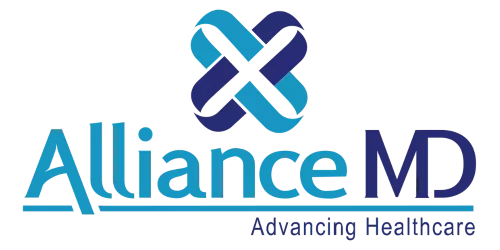Struggling with opioid addiction can feel like an uphill battle. Suboxone clinics may provide a powerful ally in this fight. Our blog post will guide you through what are suboxone clinics and how the treatment they offer can be a turning point towards recovery.
Read on to find hope and help.
Understanding Suboxone Clinics
What are Suboxone Clinics?

A suboxone clinic is a special place where people with opioid use disorder (OUD) get help to overcome their addictive habits. These clinics offer medication-assisted treatment with suboxone, wherein patients take suboxone or suboxone-based medication, which is known for reducing cravings and symptoms of withdrawal from opioids.
Medical professionals at these clinics work closely with patients to provide not just medication for opioid addiction treatment but also support and therapy needed for recovery. This approach makes the clinics a vital resource in the fight against opioid addiction.
At these facilities, trained doctors prescribe Suboxone as part of a broader, more comprehensive treatment plan that includes counseling and behavioral therapies. This combination helps individuals stop misusing opioids by controlling urges and improving mental health.
Since Suboxone is an evidence-based treatment provider, it plays a crucial role in helping many people reclaim their lives from addiction.
How Do Suboxone Clinics Work?
Suboxone clinics specialize in treating people with opioid use disorder (OUD). Doctors at these clinics prescribe Suboxone to help patients manage urges and symptoms of withdrawals from opioids.
During visits, patients receive a tailored treatment plan that may include Suboxone medication along with therapy sessions. These sessions can involve talk therapy or cognitive behavioral health therapy to address the psychological aspects of addiction.
Patients visit these clinics regularly for check-ups and counseling. This ensures they stay on track with their recovery journey. The goal is to reduce dependence on opioids while supporting the patient’s overall well-being.
Such clinics play a crucial role in providing comprehensive care that addresses both physical and mental health conditions and needs during recovery from opioid addiction.
The Role of Suboxone in Treatment
Suboxone plays a key part in treating opioid addiction. Suboxone helps patients reduce yearnings or desire for opioid consumption and manage symptoms of withdrawal effectively.
What is Suboxone?
Suboxone is used as a medication to treat opioid use disorder (OUD). It is similar in various aspects to methadone, another drug which is popular in the realm of addiction treatment used at addiction treatment clinics. It is important to note that suboxone does not have approval from the FDA to be used as a pain pill. It is used as a medication for addiction of opioids. The two primary components of suboxone are: buprenorphine and naloxone. Buprenorphine helps reduce cravings for opioids, making it easier for people to stop using different types of drugs or opioids like heroin, oxycodone, or morphine.
Naloxone works by reversing the effects of opioids if taken improperly. This combination makes Suboxone an effective tool in fighting against drug addiction and supporting detox as well as recovery.
Doctors prescribe Suboxone as part of a broader treatment plan that includes therapy and support. It manages symptoms of opioid withdrawal, substantially cuts down on cravings, and aims to restore balance to the lives of those battling OUD.
While Suboxone significantly aids in recovery, it doesn’t “cure” addiction on its own. Long-term success often requires ongoing treatment and support efforts beyond just medication.
How Does Suboxone Treatment Work?
Moving from understanding what Suboxone is, it’s essential to look at how Suboxone treatment operates to combat opioid use disorder (OUD).
As mentioned earlier, the medication contains buprenorphine, the opioid agonist that helps reduce cravings and prevent the occurence of withdrawal symptoms. It tricks the brain into thinking it’s getting the opioids it depends on, without providing the same high. As a result, individuals can manage their addiction potential more effectively.
Suboxone also includes naloxone, which guards against the high or low potential for misuse of the medication by causing symptoms of withdrawal if injected instead of taken as prescribed. Together, these components make Suboxone an effective tool in long-term OUD treatment.
It allows patients to focus on recovery measures like counseling and support groups without battling intense drug cravings or painful symptoms of withdrawals.
Why Suboxone Works as a Long-Term Treatment
Suboxone stands out as a long-term treatment for opioid use disorders (OUD) because it significantly cuts down or even stops cravings for opioids, and it also prevents withdrawal symptoms.
This is mainly due to the presence of buprenorphine. Buprenorphine targets the same parts of the receptors in the brain that opioids do but without creating the same high. This action helps people with OUD avoid using harmful drugs by keeping drug cravings in check.
Choosing Suboxone as part of addiction treatment means individuals get a chance at a stable recovery path. Unlike quick fixes, medication like suboxone or vivitrol offers a steady process toward overcoming dependence on opioids.
It makes crucial differences in recovery by allowing individuals to take control over their lives again without falling back into misuse cycles due to overwhelming cravings or fear of withdrawal.
Benefits and Safety of Suboxone Therapy
Suboxone therapy brings hope to those fighting opioid addiction by providing a safer alternative to manage cravings and symptoms of withdrawal. Its use under medical supervision makes it a trusted method in the journey towards recovery.
Benefits of Suboxone Therapy
Suboxone therapy helps people with opioid use disorder (OUD) by lessening cravings and withdrawal symptoms. This makes it easier for patients to stop using opioids. Suboxone, thanks to its two constituent drugs, targets the brain in a way that reduces the urge to take opioids, making recovery more attainable.
Safety is another benefit of Suboxone therapy. Approved by the FDA and backed by CDC evidence, it’s a reliable option for long-term treatment of OUD. Patients can focus on healing without worrying about severe side effects or addiction to Suboxone itself.
Is Suboxone for Addiction Treatment Safe?
Yes, Suboxone is safe for addiction treatment. The Food and Drug Administration (FDA) supports its use in treating opioid dependence. It combines medication with care elements to address drug use effectively.
Doctors specifically trained in addiction recovery prescribe it. This ensures patients receive the right support and monitoring.
Studies show Suboxone reduces cravings and withdrawal symptoms from opioids. The Centers for Disease Control and Prevention (CDC) also backs its effectiveness. Patients see long-term improvements in battling opioid use disorders with Suboxone therapy. Its safety and reliability make it a trusted option for overcoming addiction.
Frequently Asked Questions About Suboxone Clinics:
Q) How often do I have to go to the Suboxone clinic?
A) Visiting a Suboxone clinic or treatment center depends on the treatment plan prescribed at your AllianceMD consultation. At the start, you might need to go to the suboxone clinic near to your place often as an outpatient. This helps our doctors make sure your medication’s daily dose is right and that you are not having bad reactions. As time goes on, visits can become less frequent if everything goes well.
However, we understand that it may not be possible for every patient to come to our clinics physically at all times, which is why we offer our patients the option to connect with the medical team virtually via video calls. At AllianceMD, we firmly believe addiction treatment should be readily accessible to any individual who requires it, and thanks to our tech-driven approach, we are seamlessly able to reach the ones in need of treatment.
Doctors who run these clinics create schedules based on each person’s needs. Some people may visit weekly; others might only need to go once a month. It all depends on how well someone is doing with their treatment for opioid use disorder (OUD).
Q) Who can prescribe Suboxone?

A) Qualified addiction treatment professionals at AllianceMD, a suboxone clinic in Merrillville, Michigan, and Munster, U.S, can prescribe Suboxone. These experts have deep knowledge of treatments for opioid use disorder (OUD). They ensure patients receive medication assisted treatment tailored to their needs.
Since Suboxone is not available over-the-counter, it must be prescribed by a licensed medical professional.
Such prescription medications with behavioral therapy come from certain health care providers who understand the challenges and requirements of substance abuse recovery. They work closely with patients to manage withdrawal symptoms and reduce dependency on opioids.
Q) Do Suboxone doctors take insurance?
After learning who can prescribe Suboxone, it’s also key to understand how the treatment is funded. Many Suboxone doctors accept insurance for their services. This makes treatment more accessible for those struggling with addiction to opioids.
Having insurance to cover the cost of Suboxone therapy lowers barriers and allows more people to get the help they need.
Insurance plans widely vary, so coverage for Suboxone treatment might differ from one person to another. It’s essential to check with your specific insurance provider to see if they cover this type of therapy.
Some clinics even offer assistance in finding out what your plan covers, making the process easier for patients looking for recovery options.
Key Takeaways
- Subxone treatment clinics treat people with opioid addiction by offering medication and therapy.
- Suboxone, a mix of buprenorphine and naloxone, helps reduce drug cravings and withdrawal symptoms.
- Doctors at these clinics work closely with patients to create personalized experience for each patient in the form of specifically-created treatment plans.
- Safety is a key benefit of Suboxone therapy; it’s approved by the FDA.
- Finding a suboxone clinic which is right for you involves checking for experience, treatment approaches, and affordability.
Dealing with Relapse and Recovery
Recovery is a journey that includes ups and downs. If you relapse, it does not mean your recovery has ended; you can start again today.
What happens if you relapse?

Relapse is a part of the recovery journey for many people dealing with opioid addiction. If you go back to using drugs, it’s crucial to seek help right away. Suboxone clinics offer support and treatment to get you back on track.
Mixing Suboxone with alcohol or benzodiazepines can increase the risk of respiratory failure and relapse, so it’s important to follow medical advice closely.
Getting back into treatment quickly helps reduce the risk as well as prevent relapse. Suboxone clinics provide the necessary assistance and medication to help you live a life free from substances again.
They understand that recovery is an ongoing process and are there to support you every step of the way.
Start your recovery today
You can begin to heal from opioid addiction today by being treated with suboxone. AllianceMD’s Suboxone Clinic uses cutting-edge, evidence-based treatments that have proven effective for many. These clinics offer support and medication to help you stop using opioids safely.
By reducing cravings and preventing issues by easing withdrawal symptoms, Suboxone gives you a solid foundation for recovery.
Choosing to seek help is a brave first step towards getting better. With treatment options available even from home, starting your journey has never been more accessible. Reach out to a suboxone clinic now and take control of your path to healing, or help someone you know suffering from opioid addiction by educating them about suboxone so that they can address the underlying issues.
Conclusion
To conclude, suboxone clinics play a crucial role in helping people recover from opioid addiction. They provide a safe and effective way to manage cravings and withdrawal symptoms with Suboxone treatment.
AllianceMD supports individuals on their journey to recovery, offering hope for a life free of opioid dependence. Through professional guidance and medical care, patients learn how to live without relying on opioids. This approach not only helps in overcoming addiction but also paves the way for a healthier future.
